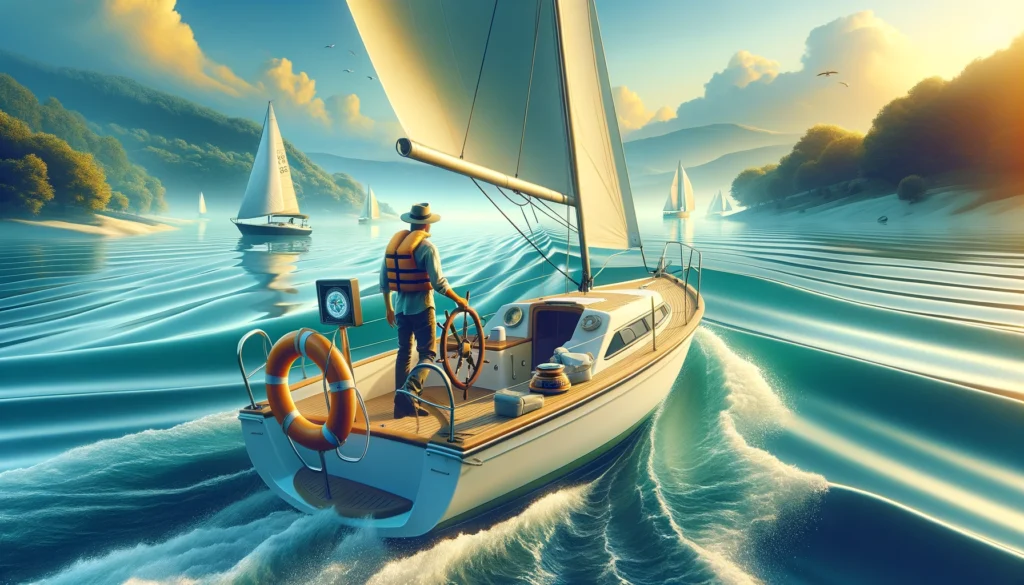Ahoy, fellow sea enthusiasts and aspiring captains! Today, we’re diving deep into the essential navigational chart of knowledge: the ultimate guide to boating licenses and certifications. Whether you’re a seasoned sailor or a novice navigator, understanding the intricacies of boating credentials is key to a safe and enjoyable voyage. So, let’s set sail on this educational journey, blending in our love for the sea with practical guidance, including some indispensable boating experience tips for beginners and essential boating tips.
Contents
Why Boating Licenses and Certifications Matter
First off, it’s crucial to recognize that the sea is as generous with its beauty as it is unforgiving of ignorance and negligence. Boating licenses and certifications are not just bureaucratic hurdles; they are your passport to a world of safe and responsible boating. These credentials ensure that every person at the helm has a foundational knowledge of navigation rules, safety procedures, and environmental regulations, which are vital for protecting both human lives and marine ecosystems.
The Basics of Boating Licenses
The requirements for boating licenses vary significantly around the globe and even within countries, particularly in the United States, where each state sets its own rules. Generally, a boating license or safety certificate is required to operate a motorized vessel or a personal watercraft (PWC). The process to obtain one usually involves completing a boating safety course, passing a test, and paying a fee. The course covers crucial topics such as maritime laws, navigation rules, emergency procedures, and boat maintenance tips.
Understanding Certifications Beyond Licenses
Beyond basic licensing, there are numerous certifications that can enhance your boating skills and safety. Organizations like the U.S. Coast Guard Auxiliary, the American Sailing Association (ASA), and the Royal Yachting Association (RYA) offer courses ranging from coastal navigation to offshore sailing, weather forecasting, and even marine first aid. These certifications are not just about ticking boxes; they’re about building confidence and competence on the water, turning novices into adept sailors and powerboaters.
Choosing the Right Course for You
Selecting the right course depends on your boating aspirations and the type of vessel you intend to command. If you’re drawn to the tranquility of sailboats, the ASA or RYA sailing courses are your best bet. For powerboating and PWC adventures, look for courses certified by the National Association of State Boating Law Administrators (NASBLA) or similar organizations in your country. And remember, the journey doesn’t end with obtaining your license; it’s just the beginning of a lifelong learning experience on the water.
Boating Experience Tips for Beginners
Starting your boating journey can feel like charting unknown waters. Here are a few tips to steer you in the right direction:
- Practice Makes Perfect: Spend as much time as you can on the water. The more you practice, the more intuitive handling your boat will become.
- Start Small: Begin with a boat that’s easy to handle and matches your current skill level. You can always upgrade as your confidence and experience grow.
- Safety First: Always wear a life jacket, prepare a float plan, check the weather, and ensure your boat is equipped with the necessary safety gear.
- Learn from Others: Joining a boating club or community can provide valuable insights and practical advice from more experienced boaters.
Essential Boating Tips
To enhance your boating experience and ensure safety at sea, consider these essential tips:
- Understand Weather Patterns: Weather can change rapidly on the water. Learn to recognize signs of changing weather and understand basic weather patterns.
- Regular Maintenance: Keep your vessel in top condition with regular maintenance. A well-maintained boat is a safer boat.
- Navigation Skills: Familiarize yourself with maritime navigation tools and techniques. In today’s digital age, learning to use GPS as well as traditional navigation tools like charts and compasses is invaluable.
Setting Sail with Confidence
Armed with the right licenses, certifications, and a sea of knowledge, you’re now ready to explore the vast and breathtaking world of boating with confidence. Remember, every seasoned sailor was once a beginner. With patience, practice, and a perpetual thirst for knowledge, the ocean’s mysteries and joys will unfold before you.
In closing, whether you’re embarking on a leisurely lake excursion or setting course for distant horizons, remember that the best boat types for adventure and adventure boating options await those who are prepared. The sea is a canvas for your dreams, and with the right preparation, you can paint it with unforgettable memories.
So, here’s to fair winds and following seas as you embark on your boating journey. Remember, the sea is not just a destination; it’s a way of life. Keep learning, keep sailing, and may your adventures be many and your troubles few. Happy boating!



